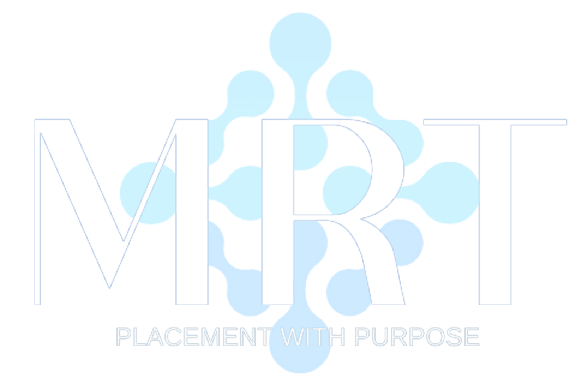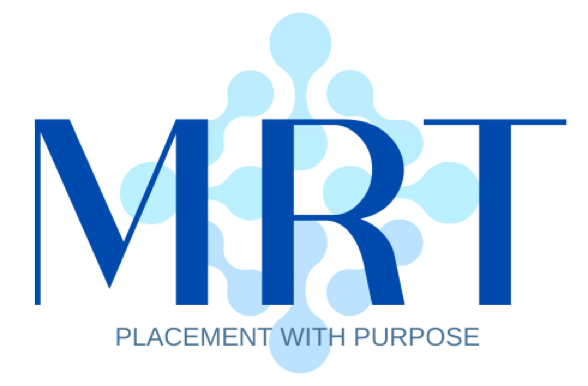May 17, 2022
Post-Pandemic Hiring Trends: Hiring Trends Are Shifting. Are You Shifting With Them?
Co-Owner and Executive Recruiter, Jerry Jones, highlights post-pandemic hiring trends. Hiring trends are shifting. Are you shifting with them?
Jerry Jones has been in the recruiting business for over 25 years and spent 15 years completing operational turnarounds by building companies from the ground up. Jerry has built his career into a passion and is continuously searching for ways to help guide and enlighten others with his front-line experience of hiring.

Recently, we conducted a Q&A with Jerry and discussed the changing hiring practices and ways for companies to ensure their hiring process is robust enough. On the other side, he revealed ways job seekers can be prepared for the new hiring trends and how they can market themselves properly.
Q: What trends have you seen with hiring authorities in the times after the pandemic? Are companies more stringent about the quality of candidate presentations, or are they looking to fill the position based on if they fit basic qualifications?
A: Companies have become more stringent with high expectations of a candidate at all levels. These expectations will not be going away either. Today the pain is real – the talent gaps are real, so those who come in must be able to do the job – do it right with significant upside potential. It is that simple.
Q: Have hiring processes shifted or been faulted in any way since the pandemic?
A: Hiring processes, in most cases, have gotten more stringent. Candidates have to be ready to interview, be on point with what they require, be able to speak to their resume and communicate effectively. Consider this – wages are up – the expectations are up too for that increase.
Q: How have potential candidates reacted to you reaching out to them about job opportunities?
A: Candidates are listening, and they will consider making a change – yes, even in the times we are in right now – will make a change if it is right for them.
Q: What are some practices companies can establish to ensure their hiring process is robust enough?
A: Their process needs to be robust – move fluidly. They need to respond accordingly, timely and make a decision. Time kills everything. Now more than ever, candidates are watching and gauging how the hiring process evolves. If your approach is undisciplined or you’re not prepared, you will lose the candidate, especially HVT candidates – they move on.
Q: What have you seen companies or job seekers do that you believe are holding them back from potential opportunities?
A: From a company’s point of view – a flawed hiring process or being indecisive, even with a good hiring approach – will cause them to lose a candidate and then wonder why. On the job seeker side – yeah, they are in demand and know it, but if they are not bringing their A+ game to the table, they will lose out and the company will pass.
Q: Do you see the current hiring trends continuing into the next year and possibly until 2024, or do you see a shift coming sooner?
A: I think we will see some softening, but the demand will remain high, considering we have more and more people retiring yearly. There is not enough talent in the pipeline to backfill the need. The gap will widen further and put more burden on companies to get even more creative.
Q: What have been the most important factors for a candidate to consider a new job opportunity?
A: The scope of the job, work-life balance, WFO, and geography.
Q: What characteristics are hiring authorities prioritizing most in candidates?
A: Stable employment history is number one – then, skills, and cultural fit.
Q: We know ‘The Great Regret’ is here. What advice would you give to an employee wanting to make a change but who has switched jobs once or multiple times in a short period? How should they answer that question in an interview? Should companies ignore these quick job jumps when looking at a candidate?
A: Stop, think, and ask yourself the hard question – be honest with yourself. Why am I willing to change jobs? – is it money, location, moving up, or am I bored and want a change? From a company perspective – job changes – yes, there are legitimate reasons someone changes jobs, but when a candidate has multiple changes without legitimate reasons why, this typically becomes an indicator of decision making, cultural issues, or other external challenges. If you’re a candidate and have had numerous changes, be upfront and honest – don’t make excuses or bad mouth the employer; hit it head-on with the prospective employer and they will respect you more for your honesty.
Q: What advice would you give to companies struggling to retain talent. How can our services and expertise guide them?
A: One of my early and often questions about any leader search I conduct is what will you do to make this “the” place to work and not “a” place to work? If they cannot articulate a good answer, I begin to pull away. People have choices, and companies have more pressure to make their locations quality environments – cultures for people to come to work and go home. They want to be valued, respected, and heard. A strong open-door policy free from retribution is an excellent start.
Q: How have current movements (resigning, new candidate perspective, need for better culture) directly affected our industries (plastics, automotive, medical devices, consumables)?
A: Culture and environment are the top issues. All management – from floor level to the executive level – must have a strong plan, a good ear for listening, and be an engaging leader for the positive. It is not always about money – money is necessary – but if your environment is dirty, not kept well, and the restrooms and breakrooms are subpar – you will always have shortages. Invest in facilities, training, and development.
The economic, social, political, and technological environments have changed drastically and rapidly since the start of the pandemic. While we are hopefully coming out the other side, the changes that it has created can be challenging. The pandemic has affected our everyday lives and has produced companies and candidates who cannot adapt to struggle.
At MRT, we put the needs of our clients and candidates above all else. If you need any guidance, whether in career, company or personal, contact any of the team members here. To reach out to Jerry or learn more about his offerings, contact him here.

